How Regular HVAC Maintenance Can Save You Money
For many homeowners in Florida, the HVAC system is the...
Installing a new HVAC system is a significant investment in your home’s comfort and efficiency. Proper preparation can make the process smoother, minimize disruptions, and help ensure the system operates efficiently from day one. Whether you are replacing an old unit or installing a completely new system, there are several steps homeowners in Florida should take to prepare.
One of the first things to do is ensure the installation area is accessible. HVAC technicians need room to work around your equipment. Remove any furniture, decorations, or stored items near the system’s location, including indoor units and outdoor condensing units. If your system includes ductwork in your attic, basement, or crawl space, make sure those areas are clear. This will allow technicians to move freely and complete the work efficiently without risking damage to your belongings.
A new HVAC system may require specific electrical configurations or upgrades. Before installation, it is important to have an electrician or your HVAC contractor review your home’s electrical panel and wiring. Ensuring your electrical system can handle the new unit will prevent delays during installation and avoid potential safety hazards. In some cases, an upgrade may be necessary to accommodate modern HVAC technology or higher-capacity units.
If your home already has ductwork, it should be inspected for leaks, blockages, or damage. Ductwork that is in poor condition can reduce the efficiency of your new system and lead to uneven heating or cooling. Technicians may need to clean, repair, or even replace parts of the duct system. If your home is getting a completely new installation, the contractors will plan ductwork routing to optimize airflow and ensure the system runs efficiently.
The location of your outdoor unit is critical for system performance. It should have adequate clearance from walls, plants, or other obstructions to ensure proper airflow. Avoid placing it near sources of heat or where water can accumulate. If your yard is cluttered or overgrown, trimming plants or clearing debris will make installation easier and maintain the system’s efficiency in the long term.
HVAC installation can involve work inside your home that may produce dust or noise. Covering furniture and sensitive items, or temporarily relocating them, can protect your belongings. You may also want to plan for limited access to certain rooms during installation. In some cases, technicians need to cut into walls or ceilings to install ductwork, vents, or the furnace, so being prepared can minimize stress and protect your home.
Your home’s ventilation plays a key role in the system’s effectiveness. Make sure vents are not blocked and airflow pathways are clear. In addition to clearing vents, check for any closed or obstructed return air pathways, as these are essential for proper circulation. Addressing these issues before installation ensures your system works as intended from the start.
Before the installation day, review the contract and discuss the installation plan with your HVAC contractor. Confirm the scope of work, estimated timeline, and any special requirements. This is also a good time to ask questions about system operation, maintenance schedules, and energy efficiency. Clear communication reduces misunderstandings and ensures your expectations align with the work being performed.
Installing an HVAC system involves moving heavy equipment, running electrical wires, and possibly cutting into walls or ceilings. Protect your flooring with temporary coverings, and secure or remove valuable items. This is especially important in high-traffic areas or spaces where the installation will be concentrated. Taking these precautions can prevent accidental damage and save time during cleanup.
While professional HVAC installers work efficiently, there may be temporary interruptions in heating or cooling. Plan accordingly by adjusting your schedule or making arrangements to stay comfortable during the installation. In Florida, where temperatures can rise quickly, having fans, portable air conditioning units, or access to a cooler environment can make the process more manageable.
HVAC installation requires access to multiple areas in your home, which can pose safety risks for children and pets. Keep them in a safe, separate space during the installation. This reduces distractions for the technicians and prevents accidental injuries or interference with equipment.
Some HVAC installations require permits or need to meet specific local building codes. Your contractor will often handle this process, but it’s useful for homeowners to confirm that all necessary permits are in place. Ensuring compliance avoids delays or complications with inspections after installation.
Once your system is installed, routine maintenance is essential to keep it running efficiently. Make sure your installation allows easy access to filters, vents, and key system components. Proper access simplifies future service calls and prolongs the lifespan of your system.
A few days before installation, double-check that all areas are clear, pets are secured, and any last-minute questions for your HVAC contractor are addressed. Confirm the installation schedule and ensure that the home environment is ready. A little preparation goes a long way toward a smooth installation experience.
Preparing your home for HVAC installation can save time, reduce stress, and help ensure your new system operates efficiently. Clearing installation areas, checking electrical systems, inspecting ductwork, and protecting your home are all essential steps. By coordinating with your HVAC contractor and taking proactive measures, you can enjoy a comfortable, well-functioning HVAC system without unnecessary complications. Proper preparation not only benefits the installation process but also supports long-term performance and energy efficiency, keeping your home comfortable year-round.
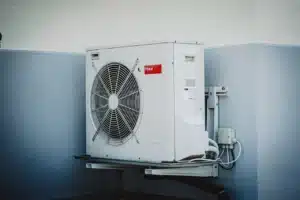
For many homeowners in Florida, the HVAC system is the...
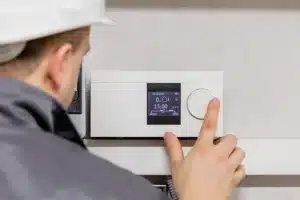
Homeowners in Florida are always looking for ways to stay...
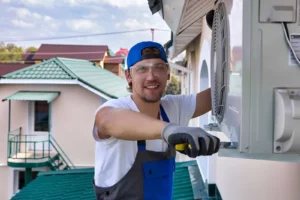
When a Florida summer hits, you expect your central air...
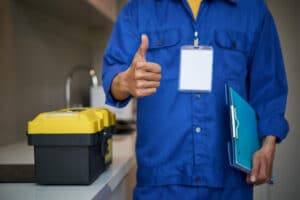
In Florida, the heat and humidity place a constant demand...
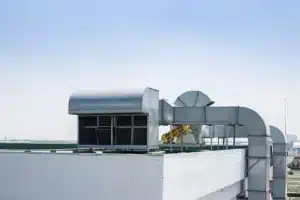
In Florida, where the heat and humidity are constant, commercial...

Air conditioning systems are vital for maintaining comfort in Florida’s...